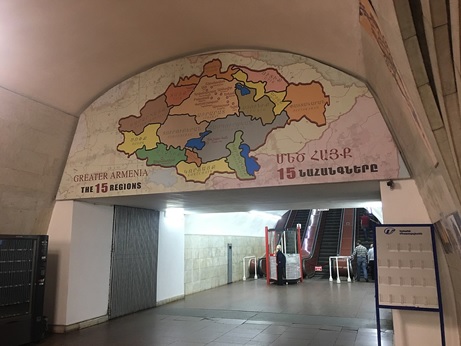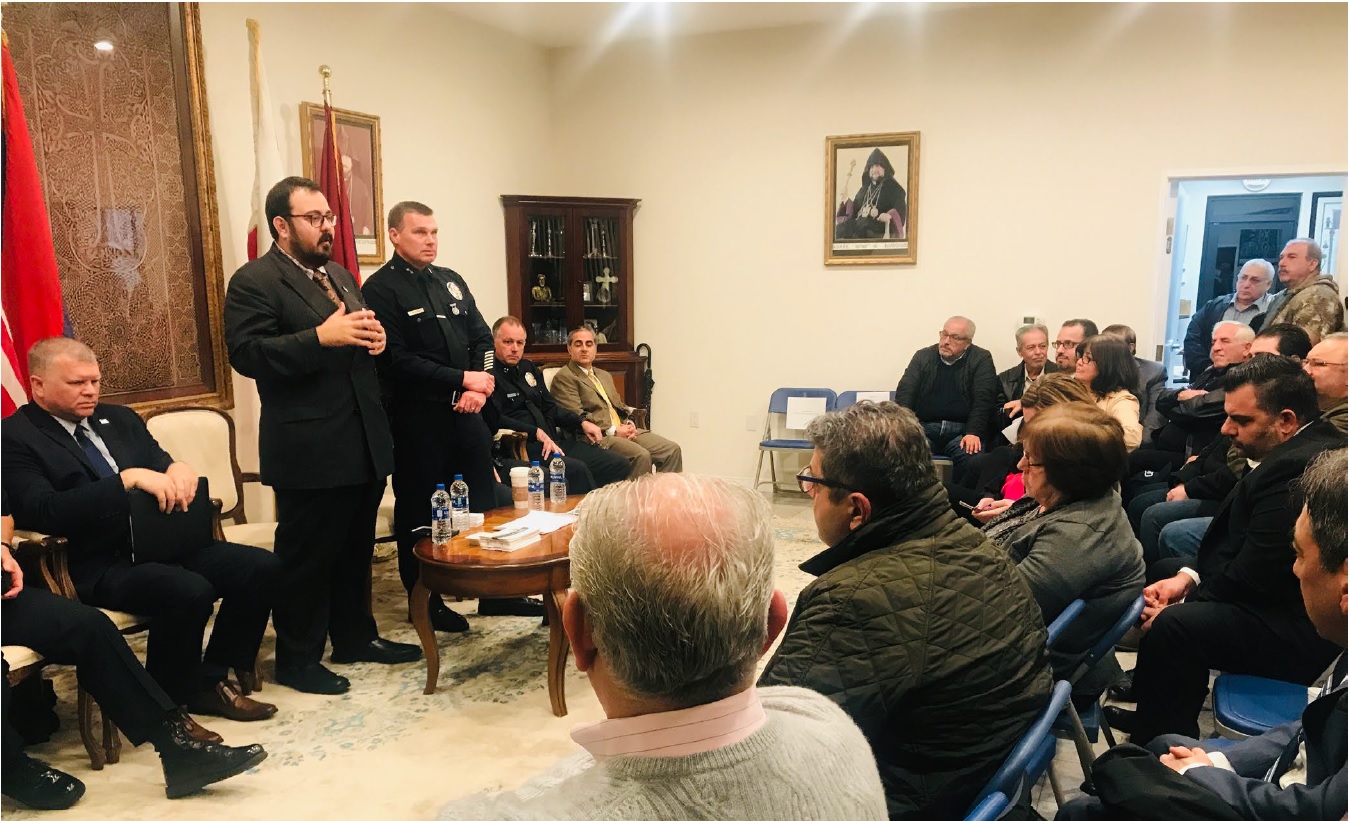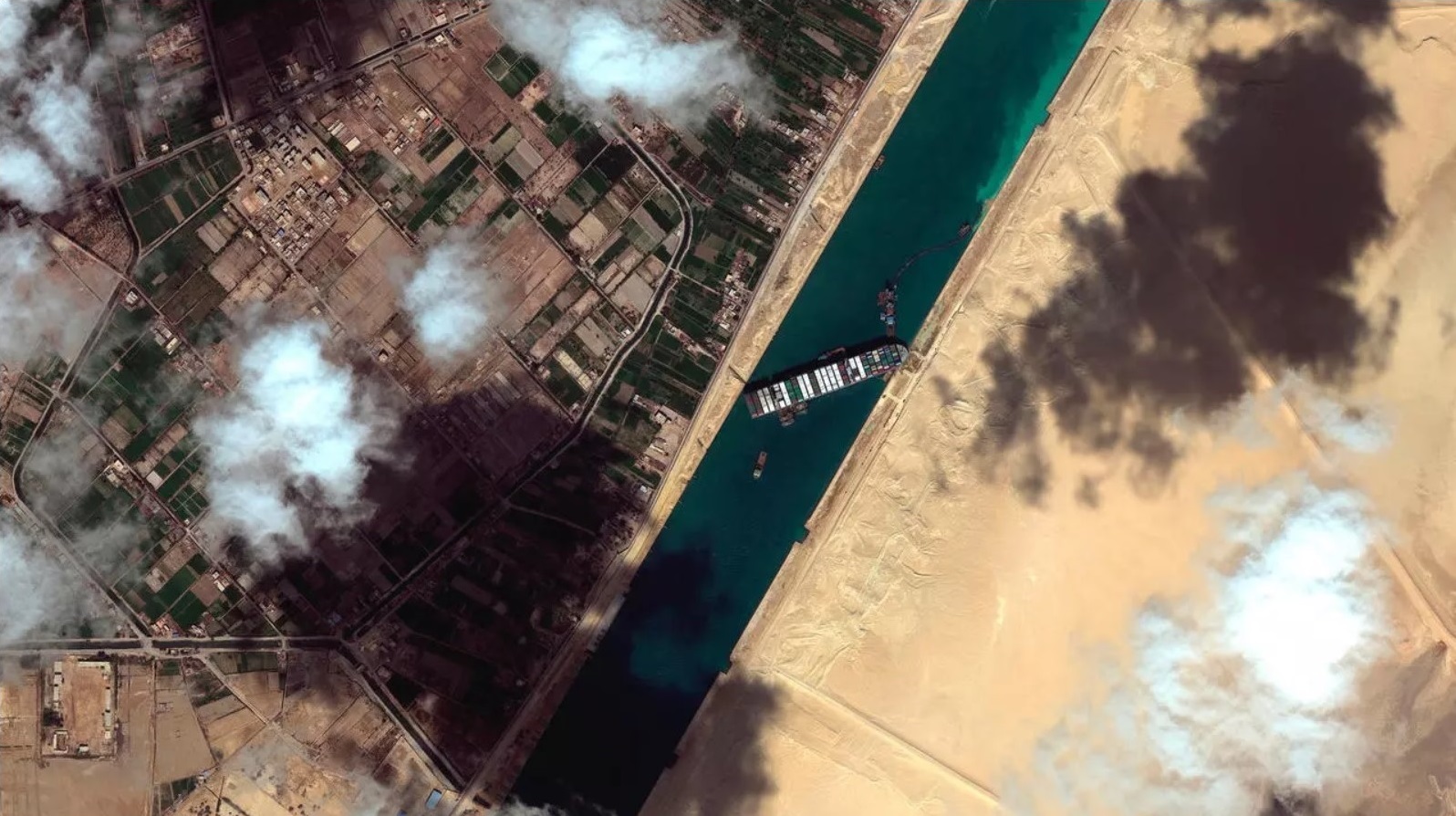
In connection with his efforts to finally demarcate the border with Azerbaijan and thus recognize the latter’s territorial integrity (hence return the Azerbaijani villages under Armenian occupation to Azerbaijan), Armenian Prime Minister Nikol Pashinyan is facing a nationalist backlash headed by the clergy and extreme nationalist elements in Armenia and the Diaspora. These elements place “the Armenian cause” at the center of their political agenda. By extension, they stand against formally recognizing existing borders and establishing friendly relations with Türkiye and Azerbaijan. The idea of border recognition hits a raw nerve with the Armenian nationalists since it means the defeat of their “Historical Armenia” ideology.
However, unlike these nationalist demagogues, Pashinyan, to his credit, seems to have learned from past mistakes, and is now actively trying to remedy them in order to guarantee a peaceful future for Armenia and the Armenians.[1] Speaking on the issue, Pashinyan stated with remarkable candor that “Historical Armenia is also a guarantee that we will not have the ability and knowledge to live in our environment without outside help and, therefore, we will always need a sponsor, an elder friend.” Elaborating further, he noted that:
“I consider myself obliged to note and speak out, we should focus on serving the interests of Real Armenia. Moreover, recording the impossibility of ever returning to the practices and thinking of Historical Armenia in the future. Otherwise, we will not even have a chance to address the external security challenges because we will have a permanent source of generating external threats within ourselves, in our daily reality, without a deep and complete understanding and assessment of this fact.”
The rhetoric of Greater or Historic Armenia permeated the political discussions within the Armenian diaspora since the end of the First World War and within the Armenian Republic since its independence. Often simply hidden behind the euphemism of “the Armenian cause,” this Armenian nationalist political narrative aims at the restoration of Armenian sovereignty over a wide region covering Eastern Türkiye (Turkey) down to the Gulf of Iskenderun, northwestern Iran, and parts of Georgia and Azerbaijan.
Over the decades, “the Armenian cause” blossomed into an industry masquerading as a strategic political analysis or a sound possibility in the Armenian politics, academia, and media both in the Diaspora and Armenia itself. Often fueled by the enmity to Türkiye and Azerbaijan, the proponents of “the Armenian cause” believe that if a lot of parliaments recognize the 1915 Events, then it will open the door for Armenia to gain territories from Türkiye. They childishly believe that, after more than a century, they have the chance to resurrect and enforce the discarded Treaty of Sevres and thus control not only Eastern Türkiye and the Çukurova region but also large parts of Azerbaijan, including Karabakh and Nakhichevan as well as. They also naively believe that because Armenians are a Christian nation, the predominantly Christian Western countries will realize all of these fantasies for the Armenians, thus sparing them the necessary pain and hard work.
To an outsider, all of these fantastic ideas might sound as delusions of a fringe movement or as extremist frenzy. Unfortunately, they represented the prevailing opinions among the Armenian politicians, academics, and the press until quite recently. In 2011, no less a person than Serzh Sargsyan, the then President of Armenia, unveiled the widespread nature of these thoughts when he told a group of Armenian students that his generation had “liberated” Karabakh and it was up to the younger generations to gain Eastern Anatolia from Türkiye. This was a thoroughly scandalous and unheard-of behavior in the 21st century from the head of a state that extolled a war of aggression and ethnic cleansing against a neighboring country, advising his young citizens to follow the same path with regard to another neighbor.
The Armenian nationalists cannot seem to comprehend that in the historical process, states and nations sometimes expand into and sometimes withdraw from territories that they once controlled or inhabited. This a process true for almost all nations, but the Armenian nationalists seem to think they must be the exception.
Once upon a time, Russia had controlled Alaska and some Russians inhabited the land, but to claim it as historic Russia and then seek its return would bring the world to the brink of destruction. Likewise, the Germans once inhabited Kaliningrad (formerly Königsberg), Wroclaw (formerly Breslau), and some territories in France and Denmark, but to claim it as historic Germany and then seek a war of aggression against neighbors to return these to Germany would not serve the purpose of peace and, as the tragic events of the Second World War have shown, would result in utter mutual destruction. Not unlike Germany, Austria once controlled large territories in Central Europe. Laying claim to these territories in the name of historic Austria, however, would be comical.
Similarly, the Balkans were historically called “European Turkey” or “Turkey in Europe”, but to claim sovereignty over these territories on that basis would destroy the entire stability in the region. Likewise, Azerbaijani dynasties once controlled Yerevan and all the territories of modern Armenia or Iran, but again, laying claim on these territories on the basis of history would be fraught with peril for the entire region. These examples could be extended almost to all nations and states.
In almost all of these cases the commonsense has prevailed, and rather than making their foreign policy dependent upon past glory or ancient grievances; these nations reconciled themselves to the new realities and borders. Peace, then, was maintained to everyone’s benefit.
It would be wise for the Armenian decision makers and public to notice and recognize that they are not an exception. Armenia’s failure to notice and realize this prevented them from making the most of what they have and enjoy peace and prosperity. Since independence, Armenia’s population has dropped more than 25 percent because of the country’s dire economic situation (and incidentally, some of these Armenians migrated to the supposedly hostile Türkiye for a better life). Instead, they displayed an everlasting and unreasonable state of hostility to their neighbors and had been dependent upon other nations for the security of their country and had to give humiliating concessions to them to maintain the façade of security.
It is to be hoped that Pashinyan’s efforts to bring commonsense to the Armenian extremist, radical nationalist thinking will be successful and that Armenia will permanently abandon its unrealistic and counter-productive claims of territorial expansion at the expense of its people, and that finally, friendly and neighborly relations based on peace and mutual recognition will be established for Armenia with Azerbaijan and Türkiye.
*Picture: A map in a Yerevan metro station, displaying the territories of Türkiye, Azerbaijan, Georgia, and Iran as part of a “Greater Armenia.”
[1] AVİM, “Armenia’s Desperate Search for Foreign Intervention and its Historical Antecedents: ‘Threads Of Continuity’”, Center for Eurasian Studies (AVİM), Analysis No: 2020/29, October 14, 2020, https://avim.org.tr/en/Analiz/ARMENIA-S-DESPERATE-SEARCH-FOR-FOREIGN-INTERVENTION-AND-ITS-HISTORICAL-ANTECEDENTS-THREADS-OF-CONTINUITY
© 2009-2025 Center for Eurasian Studies (AVİM) All Rights Reserved
No comments yet.
-
 THE TROJAN HORSE IN THE US
THE TROJAN HORSE IN THE US
AVİM 19.11.2019 -
 SMEAR CAMPAIGN AND HATE SPEECH AGAINST TURKEY AND TURKS BY RACIST ARMENIAN NATIONALISTS IN LOS ANGELES CONTINUES
SMEAR CAMPAIGN AND HATE SPEECH AGAINST TURKEY AND TURKS BY RACIST ARMENIAN NATIONALISTS IN LOS ANGELES CONTINUES
AVİM 11.02.2019 -
 THE FORGED LETTERS ATTRIBUTED TO BAHAETTIN ŞAKIR AND MANIPULATIONS OF TANER AKÇAM
THE FORGED LETTERS ATTRIBUTED TO BAHAETTIN ŞAKIR AND MANIPULATIONS OF TANER AKÇAM
AVİM 08.05.2019 -
 THE ARMENIAN NATIONAL COMMITTEE OF AMERICA'S (ANCA) OUTRAGEOUS SMEAR CAMPAIGN AGAINST DISNEY PLUS'S ATATURK SERIES PROJECT
THE ARMENIAN NATIONAL COMMITTEE OF AMERICA'S (ANCA) OUTRAGEOUS SMEAR CAMPAIGN AGAINST DISNEY PLUS'S ATATURK SERIES PROJECT
AVİM 13.07.2023 -
 A DECEITFUL ATTEMPT TO TARNISH ATATÜRK’S LEGACY AT PRINCETON UNIVERSITY
A DECEITFUL ATTEMPT TO TARNISH ATATÜRK’S LEGACY AT PRINCETON UNIVERSITY
AVİM 09.10.2025
-
THE MOSCOW SUMMIT OF THE COLLECTIVE SECURITY TREATY ORGANIZATION
Alev KILIÇ 23.12.2012 -
 G20 AND BRICS 2017 XIAMEN SUMMIT
G20 AND BRICS 2017 XIAMEN SUMMIT
Vuslat Nur ŞAHİN 21.09.2017 -
THE COURT RULING IN ARGENTINA
Ömer Engin LÜTEM 04.04.2011 -
 THE CHINA-IRAN AGREEMENT AND DISCUSSIONS ON ALTERNATIVE ROUTES TO THE SUEZ CANAL
THE CHINA-IRAN AGREEMENT AND DISCUSSIONS ON ALTERNATIVE ROUTES TO THE SUEZ CANAL
Şevval Beste GÖKÇELİK 20.04.2021 -
DIASPORA ARMENIANS AND THEIR INITIATIVES FOR COMPENSATION: THE REFLECTIONS OF THE MOVSESIAN CASE II
Aslan Yavuz ŞİR 29.02.2012
-
25.01.2016
THE ARMENIAN QUESTION - BASIC KNOWLEDGE AND DOCUMENTATION -
12.06.2024
THE TRUTH WILL OUT -
27.03.2023
RADİKAL ERMENİ UNSURLARCA GERÇEKLEŞTİRİLEN MEZALİMLER VE VANDALİZM -
17.03.2023
PATRIOTISM PERVERTED -
23.02.2023
MEN ARE LIKE THAT -
03.02.2023
BAKÜ-TİFLİS-CEYHAN BORU HATTININ YAŞANAN TARİHİ -
16.12.2022
INTERNATIONAL SCHOLARS ON THE EVENTS OF 1915 -
07.12.2022
FAKE PHOTOS AND THE ARMENIAN PROPAGANDA -
07.12.2022
ERMENİ PROPAGANDASI VE SAHTE RESİMLER -
01.01.2022
A Letter From Japan - Strategically Mum: The Silence of the Armenians -
01.01.2022
Japonya'dan Bir Mektup - Stratejik Suskunluk: Ermenilerin Sessizliği -
03.06.2020
Anastas Mikoyan: Confessions of an Armenian Bolshevik -
08.04.2020
Sovyet Sonrası Ukrayna’da Devlet, Toplum ve Siyaset - Değişen Dinamikler, Dönüşen Kimlikler -
12.06.2018
Ermeni Sorunuyla İlgili İngiliz Belgeleri (1912-1923) - British Documents on Armenian Question (1912-1923) -
02.12.2016
Turkish-Russian Academics: A Historical Study on the Caucasus -
01.07.2016
Gürcistan'daki Müslüman Topluluklar: Azınlık Hakları, Kimlik, Siyaset -
10.03.2016
Armenian Diaspora: Diaspora, State and the Imagination of the Republic of Armenia -
24.01.2016
ERMENİ SORUNU - TEMEL BİLGİ VE BELGELER (2. BASKI)
-
AVİM Conference Hall 24.01.2023
CONFERENCE TITLED “HUNGARY’S PERSPECTIVES ON THE TURKIC WORLD"









